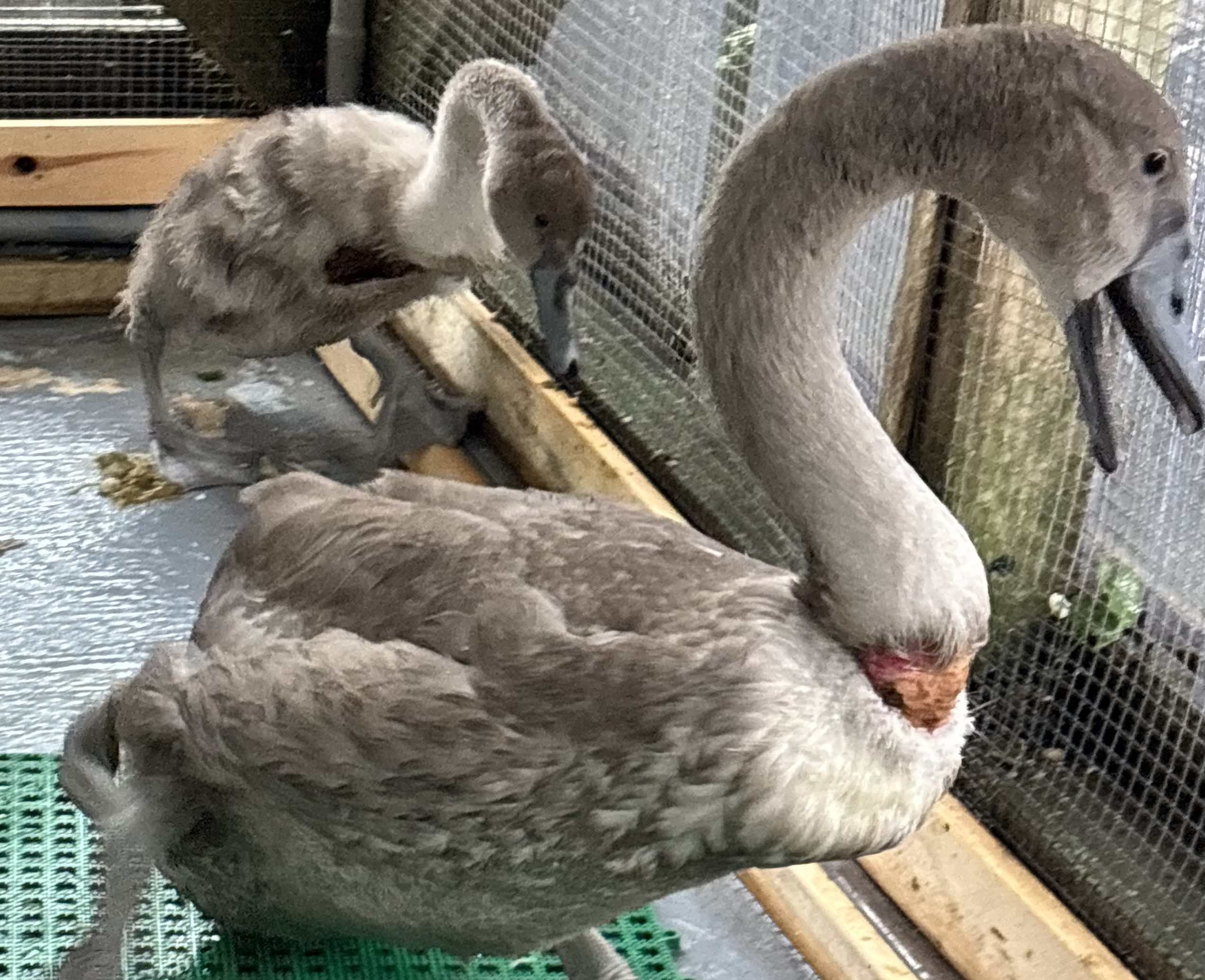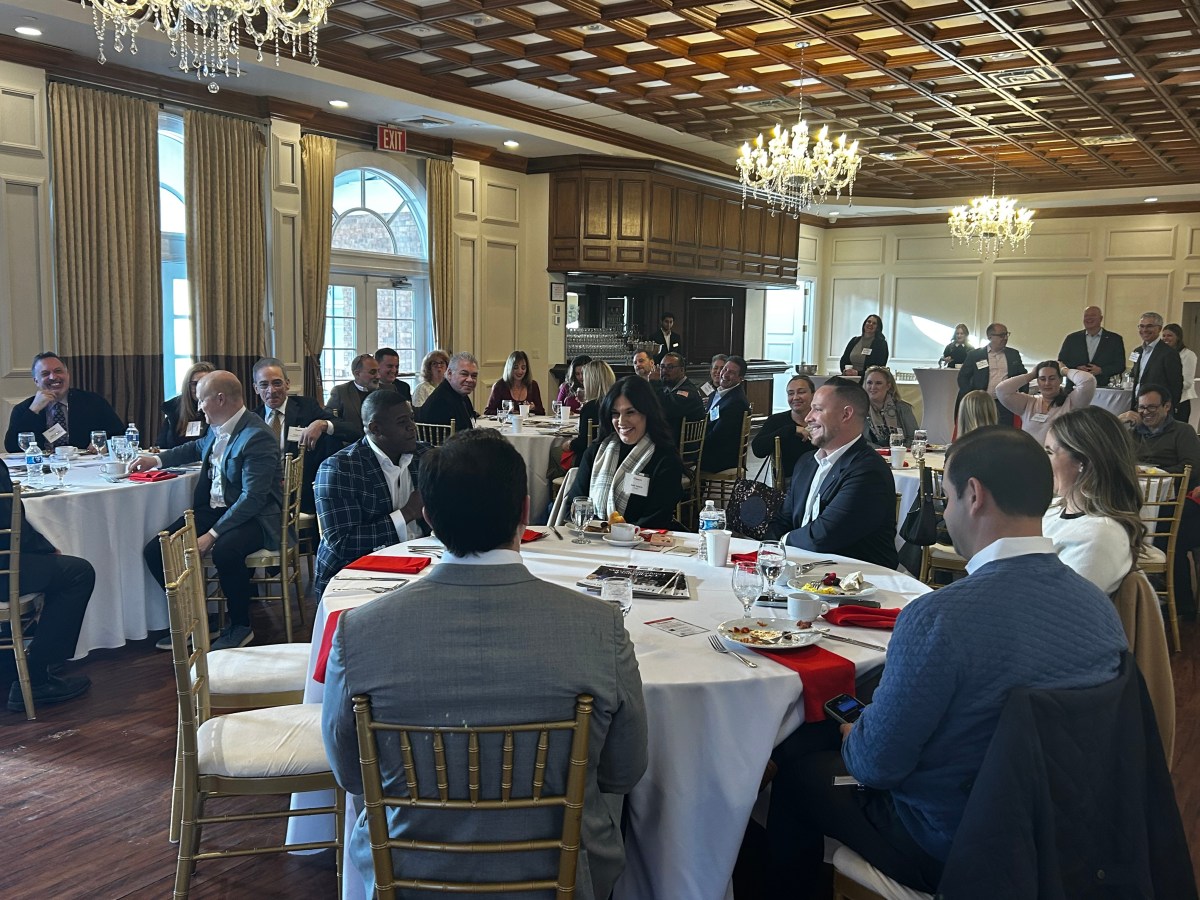Evelyn Alexander Wildlife: Swan Season on the Rise

Two young cygnets (baby swans), one barely a month old, the other just a couple of weeks older, are currently sharing an enclosure at the Evelyn Alexander Wildlife Rescue Center (EAWRC). They’re not siblings, but they’ve become inseparable ever since ending up at the EAWRC. Resting beside each other in rehabilitation, they seem to understand that they’ve both been through something difficult.
“They came from different places,” says Rose Lynch, animal care assistant of the EAWRC, “but really, they came from the same story.”
Both cygnets were rescued from separate but strikingly similar situations after being isolated, injured, and attacked. The older of the two, maybe six weeks old, came in with deep wounds along his neck, marks likely left by other territorial swans. “We were really worried when he came in,” Lynch explains, “the injuries were deep enough that we had to watch closely as they healed. If the tissue tightens wrong, it can constrict breathing. But so far, he’s healing really well.”
The younger cygnet’s injuries were centered around his chest and looked more mechanical than natural. Lynch suspects a boat collision, which left him disoriented and vulnerable. “He probably got hit, then picked on. Other swans, especially during breeding season, are extremely physical. If they see a weak or unfamiliar swan, whether cygnet or adult, they’ll attack. That’s likely what happened,” she continues.
Territorial disputes among swans aren’t uncommon, particularly among Mute Swans, a species that, while strikingly beautiful, has a complicated history on Long Island. Mute Swans aren’t native to North America. They were brought over from Europe in the 1800’s, originally kept in ornamental ponds and private estates for their known elegance and grace. Since then, their population has grown steadily and spread across much of northeastern America, often at the expense of native species like Trumpeter and Tundra Swans.
“They don’t really follow the same patterns as native swans,” Lynch explains, “They take up a lot of space, and they’re aggressive about protecting it, even if that means going after their own kind.”
And lately, swans have been keeping the center busy. “Out of any animal I’ve rescued,” says Ryan Gilmartin, animal care assistant at the EAWRC, “swans are probably number one. Easily. Especially this time of year. A lot of the town PDs have my number saved, and they’ll call me when they find one on a roadside or stuck somewhere it shouldn’t be.”
Because swans need a running start over water to take flight, they often become stranded on land. Young swans kicked out of their family groups may wander into neighborhoods, golf courses, or roadways, mistaking wet pavement for a lake. Adults, distracted by raising their young, frequently get tangled in fishing lines or suffer from lead poisoning, two of the most common and preventable injuries the EAWRC sees.
Just days ago, the team received a call from Moriches about a swan with a fishing line wrapped around his neck. “He wouldn’t leave the water,” Lynch recalled. “People were trying to help, but he stayed close to his family, his mate and babies were right there. That’s why he wouldn’t come out.”
Eventually, the team was able to intervene. “We were lucky,” she says, “as usually those injuries are awful, barbed hooks, blood, feathers everywhere. But this time it was just a line. It came right off, and we brought him right back to his family.”
Mute Swans, for all their aggression, are also fiercely devoted. They mate for life and raise their young together, guarding them from predators and teaching them how to navigate the water. “The babies hatch in June, and the parents usually stay with them all summer,” Lynch explains, “and sometimes even into the next year. Some parents eventually kick them out, but some let them stick around for a while. It depends on the swan.”
Back at the EAWRC, the two rescued cygnets are still eating nonstop, a good sign of recovery. They’re also keeping each other company, despite the noticeable size difference. “That companionship really helps,” Lynch continues, “they’re social animals. Having a buddy makes all the difference.”
If their feathers regrow properly and their wounds continue to heal, they’ll likely be released by early fall, just in time to join the flocks of juvenile swans learning to navigate the changing seasons.
“They’re not just pretty birds in a pond,” Lynch states. “They’re complicated. They’re emotional. They’re smart. And they get themselves into more trouble than people think.”
The Evelyn Alexander Wildlife Rescue Center is located at 228 West Montauk Highway, Hampton Bays. It can be reached at 631-728-4200, and animal emergencies can be reported at 631-728-WILD (9453). The center is open 9 a.m.–5 p.m. seven days a week. Visit wildliferescuecenter.org for more information.









